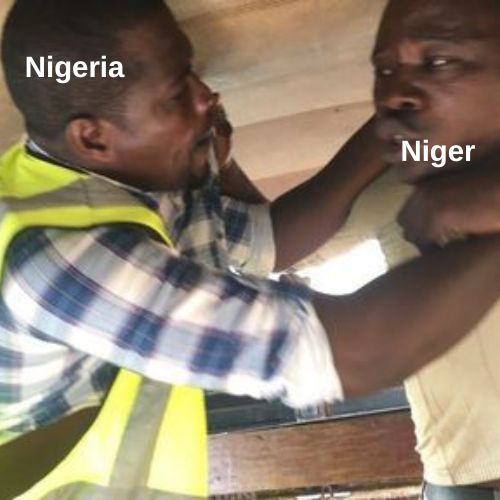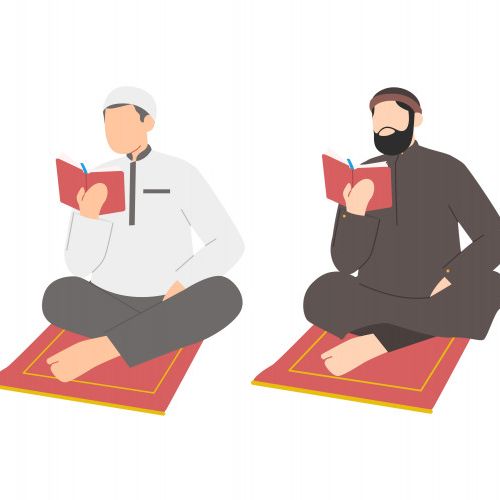The Nigerian experience is physical, emotional and sometimes international. No one knows it better than our features on #TheAbroadLife, a series where we detail and explore Nigerian experiences while living abroad.
This week’s Abroad Life story is three in one. Our subject is a development economist who has a particularly interesting Japa story that spans over seven years and took her to three countries on different continents. She’s currently in the United States, but that doesn’t seem to be her final destination.
First, why did you decide to leave Nigeria?
It was just a very oppressive place for me. Not just politically and economically, but also socially. It wasn’t a place that allowed me to express myself in the ways I wanted. I was alté before alté actually became a thing, so it was really stressful to explain why I dressed the way I did or did things a certain way. This was as far back as 2009. I was around age 15 at the time and my need for self-expression was starting to explode.
I decided I wanted to go someplace where I’d have the freedom to be more expressive. I can’t remember exactly when I made the decision to leave, but I remember doing a lot of research for places to go, and after a while, I settled for Italy.
Why Italy?
So, I really wanted to go somewhere that didn’t have a lot of Nigerians. This isn’t because I had anything against Nigerians, but you know how parents have their own international spy network? I was trying very hard to avoid that. I just wanted a place where I could really get to know myself.
Secondly, I’d begun a career in the creative arts, and it was important for me to go someplace where I could nurture my curiosity and gain more experience. I did my research and found a programme that would let me spend time in Italy and Germany. This was very appealing to me because at that time, I was working for an art foundation. Italy represents such a big part of art history with the Renaissance, and I would be living in Tuscany, one hour away from Florence.
Also, Berlin represents that edgy and experimental phase of art, and I thought that summed up everything I was looking for at the time. I also liked that I could see other countries in Europe relatively cheaply because of the EU agreement. I wasn’t even thinking about the US or Canada at the time. You could have given me a million dollars, and I still wouldn’t have gone to those countries.
That sounds very interesting and intentional. So what was the process like?
Hmmm, this question. So I applied for a long-stay visa to Italy. This was my first time handling such applications by myself, and it was quite stressful. It was also my first exposure to how demeaning traveling on a Nigerian passport is, whether you’rea tourist or not.
First of all, booking an appointment was very stressful. Even though there were websites for this, I had to go to the embassy and get the security to talk to me and give me a date. A lot of people had to bribe them just to get an appointment.
The second problem was the embassy staff themselves had all this information printed out and displayed, but they weren’t actually very helpful in person. They were mostly irritated by the applicants. This meant I had to figure most things out by myself or by talking to people who had been through the process.
Another thing I didn’t think about was that Italy isn’t an English-speaking country, so I had to translate all my documents to Italian, and I had to assemble documents from when I was born because it was for a long-stay visa. There was a time I lost all my translated documents and had to start over.
Another time, they asked me to come back to the embassy, and when I did, they refused to open the gates for me. I have this sharp memory of just standing outside the Italian embassy wearing my sunglasses, with silent tears streaming down my face. I felt very “f*ck this process!” at the time, but I picked myself up and continued.
Wow, that’s a lot!
The good part was once it was done, it was done. So, five months after I started, my visa got approved. I packed my bags and moved to Italy. This was in 2015.
Awesome! What was Italy like?
Italy was very beautiful, but because I was young and had never travelled before, there were a lot of things I didn’t know about being an immigrant. I just assumed everything would go smoothly. In hindsight, I should’ve done more research about that.
How young were you at the time?
I was between the ages of 20 and 21.
Wait…what?
Haha, yes. I was very young at the time.
What was the experience like in Italy?
Once you get there, you have to go to the police and register yourself, so they can prepare your residency documents. You basically show them your visa, and they prepare a residency card you can take everywhere.
The problem was the visa I had was very restrictive. I wasn’t on a work visa, so paid work was very hard to find. I was very fortunate at the time to be receiving a monthly allowance from my parents back in Nigeria. I just continued my academic research till I found an internship at an art gallery that allowed me to indulge my passion for the arts. I eventually had to come back to Nigeria because I had a long-stay visa not a permanent one.
Back to the trenches. How did you deal with that?
It was fun to be back actually. I just hung around for a bit and enjoyed life as a Lagos babe.
Where did you go from here?
I love Nigeria, but I can’t be there for too long or I start losing my mind. But at that point, I was no longer working full-time in the creative sector. It had become a side thing, and I was now in a field called “international development”. This was just a fancy name for NGO work.
I looked at the careers of people I wanted to be like and noticed they’d spent time in low-income countries. So I decided to do that. I found an international development gig in Uganda through a Facebook group I’d joined. The pay was poor but they provided for all the living logistics so I didn’t mind.
I took the job on the understanding that I was going to enter the country on a tourist visa with the provision for a work visa upon arrival. LMAO. Big mistake.
What happened?
The Ugandans denied my work visa. It was a big shock because everyone they’d hired for that position before had had their visa approved. But I was also the first African national to be hired for that role. Every other person was Canadian or American. This is when I discovered discrimination within Africa, and it was more traumatising to me than it was in western countries.
I had to file an appeal to get a work visa, which meant they had to keep my passport for that period. My job was meant to last for a period of two years but for the next seven months, I didn’t have a passport. The problem was, as a foreigner in Uganda, you need a passport to register for everything. So I had to beg my coworkers for everything. To get a SIM card, they had to register it under their name. I didn’t even have a bank account in Uganda; my salary had to be paid in cash. The worst part for me was I couldn’t even travel. Not home, not anywhere.
Eventually, I had to cut my two-year contract down to one year and cancel my appeal. But even after I did that, my passport wasn’t released to me. I was put in an immigrations vehicle and driven to the airport like I was being deported. They held onto my passport until I got to passport control. I’m never going back to Uganda. It was a harrowing experience.
I’m so sorry about that. So what did you do after all this?
At this point, I didn’t have migration energy anymore. I came back to Nigeria in 2019 and stayed for a while. I got a job I liked but didn’t see myself staying long-term at.
I had a short vacation in Europe that reinvigorated my travel spirit, and I started thinking more long-term about migrating. My plan was to go to a prestigious school and work at a prestigious organisation. This was when I stopped being alté and became more mainstream.
I did my research and decided to get a master’s degree in development economics. I was lucky enough to get a full scholarship to an American university. The programme was ranked top 0.1% in the world, and I liked that. But I wanted security. So, for the sake of insurance, I started processing my Canadian PR (Permanent Residency).
A smart woman. How did that go?
My school was in Washington DC, which is an expensive place to live in. Because my scholarship didn’t cover living expenses, I was a few thousand dollars short. Luckily, I had friends who were keeping their money in my account at the time, so I could easily ask to borrow from that to cover my expenses.
The visa application process was different than I was used to because I mainly interacted with the school and not the embassy, initially. I was meant to start school physically in August 2020, but COVID struck when I started the visa application process in March. As a result, I was going to school remotely from Nigeria. Because school had already started, I was granted an emergency appointment with the US embassy in November. The visa was approved, I bought my ticket and got ready to move. By January 2021, I was in the US.
How has it been so far? Expectations vs Reality: US edition
The first thing that struck me was how big everything is. The roads were big, the houses were big, even the serving portions at restaurants were really big. It’s why I like DC, because it has a bit of normalcy to it. But everywhere else, it’s as if they have an obsession with size.
Another thing that surprised me was the health system. Everywhere else, when you’re sick, you go to the hospital nearest to you. In America, that’s one chance! First of all, you have to have insurance. Secondly, your insurance only covers certain things, so you have to call your insurance company to confirm if what’s making you go to the hospital is covered. I find that ridiculous.
Advertising is also constantly in your face. Everyone’s trying to figure out another way to take money from you. On top of that, it’s actually cheaper to buy something new than it is to fix it, which feeds into the consumerist lifestyle they already have. For example, if something was wrong with the zip on my dress, it’ll be cheaper for me to buy a new dress than to take it to someone who can fix the zip. That’s insane.
The last shocker would be an abundance of well-mannered men. Right now, I’m retired from Nigerian men. Only God’s intervention would make me go back. Sorry, not sorry.
What’s your favourite thing about the US?
I like my life here because I have peace of mind. My favorite thing is I could never afford therapy until I came to this country. My insurance now gives me access to incredible mental healthcare, which has done a lot for me. I’m really grateful for that.
What’s life like right now and what are your plans for the future?
I’m basically enjoying myself right now. I really like it here. I particularly like DC because there’s a lot of thoughtfulness in how the city was planned that reminds me of Europe. It’s a really beautiful place.
My sister is closeby in Canada, and I’m also in a loving relationship. I’m applying for jobs, and yeah, I was right. Getting a fancy education and internships has opened ridiculous amounts of doors. I’m in a good place.
As for the future, I see myself staying here long-term. The worst-case scenario is I pack my bags and move to Canada next-door which solves the problem of ever having to be stuck in Nigeria by condition. So yes, that’s my story. It only took me seven years, but I did it.
READ THIS NEXT: “My Family Wouldn’t Be Close-Knit if We Didn’t Move to Canada” — Abroad Life
Want more Abroad Life? Check in every Friday at 9 A.M. (WAT) for a new episode. Until then, read every story of the series here.




